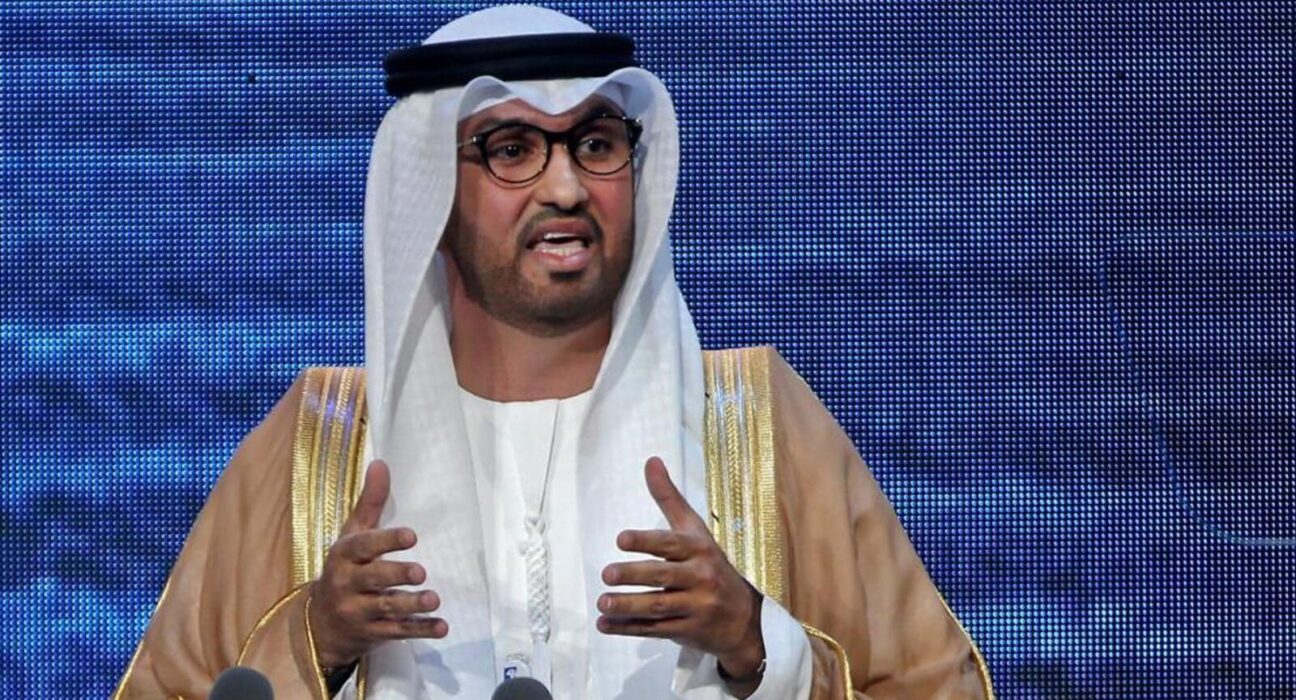Concerns as Oil CEO named chief of COP28

[ad_1]
State oil giant Abu Dhabi National Oil Corporation (ADNOC)’s chief executive officer (CEO) Sultan al-Jaber has been named as the president of the UN Climate Conference (COP28) scheduled to be held in Dubai in December. He will be the first serving oil firm CEO to take the post, raising concerns among experts and activists about the potential conflict of interest his selection as the top climate negotiator may have created.
United Arab Emirates (UAE) deputy prime minister Sheikh Mansour bin Zayed Al Nahyan announced al-Jaber’s appointment on Thursday.
Al-Jaber, who is the UAE’s industry and advanced technology minister, has served as his country’s special envoy on climate change since 2010. He has participated in over 10 COPs, including COP21 in Paris in 2015.
In a statement, ADNOC said al-Jaber has two decades of executive business and leadership experience in government and climate policy across the renewable and conventional energy sectors. It added he has played a key role in shaping the UAE’s clean energy pathway. “…he has pioneered a practical and responsible approach to accelerating the energy transition that embraces climate action, energy accessibility, energy security, and economic growth.”
ADNOC said as the founding CEO of Masdar, a government-owned renewable energy company, al-Jaber has overseen its mandate to accelerate the adoption of renewables within the UAE and globally. “In his current role as CEO of ADNOC, he is spearheading decarbonizing and diversifying the company’s operations and investments in a drive to make today’s energies cleaner, while investing in the clean energies of tomorrow.”
Al-Jaber said the UAE is approaching COP28 with a strong sense of responsibility and the highest possible level of ambition. “In cooperation with the United Nations Framework Convention on Climate Change (UNFCCC) and the COP27 Presidency, we will champion an inclusive agenda that ramps up action on mitigation, encourages a just energy transition that leaves no one behind, ensures substantial, affordable climate finance is directed to the most vulnerable, accelerates funding for adaptation and builds out a robust funding facility to address loss and damage.”
He said climate action is an immense economic opportunity for investment in sustainable growth. “Finance is the key that can unlock climate action and the UAE is committed to supporting and facilitating the review of the international financial institutions to scale up public financing, leverage private finance, and improve access.”
He promised a pragmatic, realistic, and solutions-oriented approach that delivers transformative progress for the climate and low-carbon economic growth. “As a nation at the crossroads of the globe, the UAE is well-positioned to build bridges, foster consensus, and bring the world together in one shared mission to keep 1.5°C alive and protect the planet for the generations who will follow us.”
Al-Jaber said COP28 will especially focus on how climate action can address the needs of the Global South, as those most impacted by climate change.
Phasing down of fossil fuels became a contentious issue at COP27 in Egypt. India stated that it did not support singling out of a single fossil fuel — coal — and called for an acknowledgement that all fossil fuels contribute to greenhouse gas emissions and that the Paris Agreement requires phasing down of all fossil fuels.
The position relates to differences over which fuels are to be singled out for action, specifically the phasing out of subsidies by 2025. Developed nations have pushed for a harder line on fossil fuels like coal, a fuel developing countries are greatly dependent on. EU and US also suggested that they wanted language on phasing down of all fossil fuels in the Sharm El Sheikh cover decision. But, Frans Timmermans, executive vice-president, European Commission for the European Green Deal said EU will support India’s call only if it doesn’t diminish the earlier agreement in Glasgow on phasing down coal. Nevertheless, the Sharm El Sheikh Implementation Plan has no language on phasing down or phasing out fossil fuels. This can slowdown mitigation of emissions required for 1.5°C goal and even the 2°C goal under Paris Agreement. There was stiff resistance from Arab nations and oil-producing countries on clubbing oil and gas with coal for phase down according to observers and negotiators from India. Now with UAE selecting an oil giant CEO for leading COP28, there are concerns on how fossil fuel phase down or phase out will be dealt with.
The past eight years were the warmest on record globally, fuelled by ever-rising greenhouse gas concentrations and accumulated heat, according to six leading international temperature datasets consolidated by the World Meteorological Organization (WMO).
The average global temperature in 2022 was about 1.15 [1.02 to 1.27] °C above the pre-industrial (1850-1900) levels. The year 2022 is the 8th consecutive year (2015-2022) that annual global temperatures have reached at least 1°C above pre-industrial levels, according to all datasets compiled by WMO.
The Intergovernmental Panel on Climate Change (IPCC) and the Sharm El Shiekh plan states that limiting global warming to 1.5°C requires rapid, deep and sustained reductions in global greenhouse gas emissions of 43% by 2030 relative to the 2019 level. In comparison, emissions if accounted based on implementation of all latest nationally determined contributions, is estimated to be 0.3% below the 2019 level.
Climate Action Network International, a global network of environmental non-governmental organisations in over 130 countries, called it imperative for the world to be reassured that al-Jaber will step down as ADNOC CEO.
Tasneem Essop, the network’s executive director, said al-Jaber cannot preside over a process tasked to address the climate crisis with such a conflict of interest, heading an industry that is responsible for the crisis itself. “If he does not step down as CEO, it will be tantamount to a full-scale capture of the UN climate talks by a petrostate national oil company and its associated fossil fuel lobbyists.”
Essop said COP26 in Glasgow had 500 fossil fuel lobbyists, the COP in Egypt saw a 25% increase in their presence, and COP28 now seems to be open season for vested interests who will no doubt use the climate talks to continue to undermine any progress on climate action. “…we demand that al-Jaber does the right thing and either stand aside or step down.”
“Appointment of Sultan al-Jaber, chief of a major oil company as the next climate COP by UAE is an interesting development. UAE is an OPEC member country with an ambition to achieve net zero carbon goal by 2050 while simultaneously sustaining oil production. In the backdrop of deepening climate crisis, the choice of COP president is apparently guided by UAE’s keenness to skillfully balance the conflicting goals of its oil based economy with those of global goals of reducing emissions and addressing climate change. However, the solutions such as CCS espoused by the oil industry of which ADNOC CEO is a representative are rather controversial and less convincing,” said RR Rashmi, distinguished fellow, TERI.
Yvo de Boer, who was the UN climate chief between 2006-2010, said the UAE has much to offer, especially when it comes to the thorny question of how to rise to the climate challenge while creating prosperity at the same time. “Masdar City in Abu Dhabi is a renowned green innovation hub that also houses the International Renewable Energy Agency…),” de Boer said in a statement.
De Boer noted the UAE has adopted a sound green growth strategy and is a major investor in renewable energy both at home and abroad. “The COP President designate has been instrumental in many of these issues. This equips him with the understanding, experience, and responsibility to make COP28 ambitious, innovative, and future focussed.”
De Boer’s successor Christiana Figueres, who was the UN climate chief from 2010-2016, said the International Energy Agency has been abundantly clear that there is no more atmospheric space for any new oil, gas, or coal. “This policy clarity echoes the findings of science and the increasing demands of public opinion.”
Figueres said COP28 must not only align with this reality, but accelerate global decarbonisation. “There is no other path forward.”
[ad_2]
Source link







